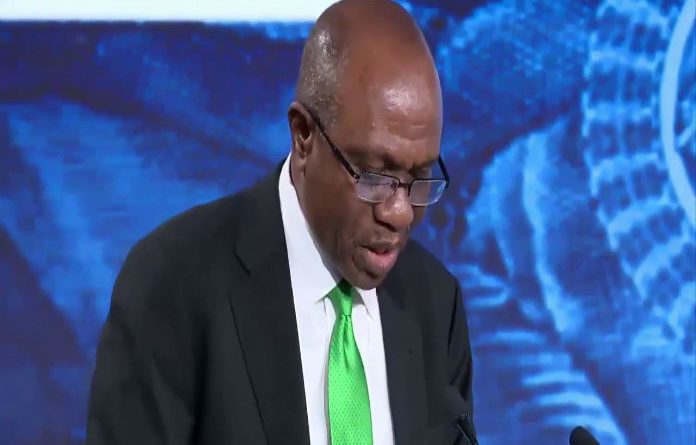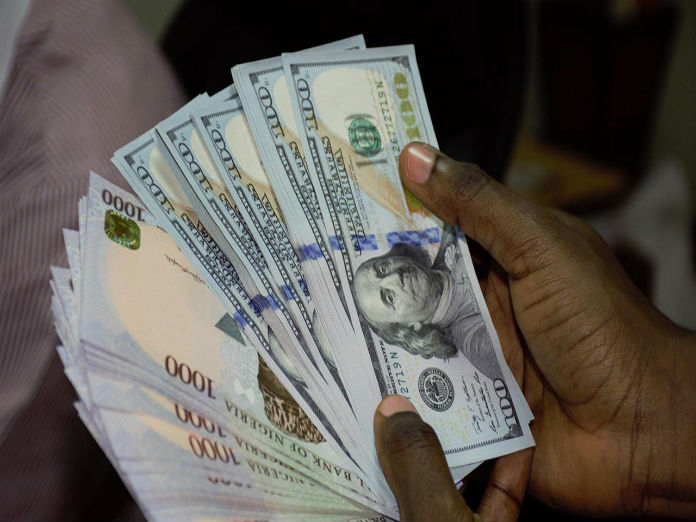MPC Approves N50 Billion Fund To Support households, SMEs Affected By COVID-19
Oru Leonard
The Monetary Policy Committee (MPC), has approved N50 Billion Fund To Support households and Small and Medium Enterprises (SMEs) Affected By COVID-19
The approval was made at the meeting held by MPC on the 23rd and 24th March 2020 where the MPR was also retained at 13.5 per cent.
Interest rates was reduced from 9 to 5 per cent on its existing intervention programmes over the next one year; created a N50 billion fund to support households and Small and Medium Enterprises (SMEs) affected by COVID-19; introduced credit support for the healthcare sector; introduced regulatory forbearance to consider temporary and time-limited restructuring of loan terms and tenors to households and businesses affected by COVID-19, and strengthened the loan-to-deposit ratio (LDR) policy.
In addition, pharmaceutical companies would be assisted through loan interventions to re-establish drug manufacturing firms in Nigeria and curtail the spread of the corona virus. In summary, it is expected that through these interventions, about N3.5 trillion would be injected as stimulus to support the Nigerian economy during this trying time.
The Committee noted the continued uptick in headline inflation (year-on-year) for the sixth consecutive month to 12.20 per cent in February 2020 from 12.13 per cent in the previous month. The increase in inflation, was largely attributed to increases in the food and core components, which rose to 14.90 and 9.43 per cent in February 2020, from 14.85 and 9.35 per cent in January 2020, respectively. This was driven by shocks to food prices associated with renewed insurgency in major food producing areas of the Country and persisting infrastructural deficits.
The MPC also observed that broad money supply (M3) contracted for the second consecutive month by 2.29 per cent (year-to-date) in February 2020, reflecting the decline in Net Foreign Assets and Net Domestic Assets. Specifically, the contraction in M3 was driven primarily by a decline in securities other than shares and currency outside depository corporations in the review period. Net Aggregate Credit, however, grew by 1.34 per cent in February 2020.
However, the Committee noted with satisfaction the growth in aggregate credit by N2.35 trillion since the inception of the LDR policy, reflecting the potency of the policy and thus urged the Management of the Bank to sustain the current momentum of improved flow of credit to the private sector in Nigeria. It emphasized the need for coordination with the fiscal authorities, to strengthen access to credit to some critical sectors of the economy, including the weak and vulnerable population, particularly those in the informal sector through the setting up of a special fund, as well as support the enforcement of credit recovery.
Accordingly, sectoral distribution of credit between end-May 2019 and end-February 2020 was as follows: Manufacturing (N533.06 billion); General Retail and Consumer Loans (N380.71 billion); General Commerce (N229.87 billion); Agriculture, Forestry and Fishing (N163.04 billion); Information and Communications (N163.69 billion); Finance and Insurance (N131.20 billion); Construction (N112.25 billion); and Transportation and Storage (N45.42 billion), amongst others.
The Committee noted the dismal performance in the equities market as the All-Share Index (ASI) decreased by 17.30 per cent and Market Capitalization (MC) by 10.73 per cent between end-December 2019 and March 20, 2020. The decline was largely attributed to profit taking and divestment by foreign portfolio investors, the delisting of shares of three quoted companies and capital outflow associated with the COVID-19 and subdued global economic activity.
The MPC noted the continued resilience of the banking system, evidenced by the further moderation in the ratio of Non-Performing Loans (NPLs) from 6.59 per cent in January to 6.54 per cent in February 2020. Although the ratio remained above the prudential benchmark of 5.0 per cent, the Committee expressed confidence in the Bank’s regulatory regime and commitment to maintaining stability in the banking system.
On the outlook the Committee said the overall medium-term outlook for the global economy remains uncertain with increased deterioration in financial market conditions and weak global output growth. The major headwinds to the current projection for global growth includes: disruption to the global supply chain arising from the COVID-19 pandemic; oil price downturn as a result of subdued global demand, vulnerabilities in major financial markets; rising corporate debt in the advanced economies and public debt in some Emerging Market and Developing Economies; as well as broad uncertainties leading to adverse shocks to foreign investment flows.
On the domestic front, available data on key macroeconomic variables indicate the likelihood of subdued output growth for the Nigerian economy in 2020.
The Committee reviewed the prevailing adverse conditions in the global economy such as the COVID-19 pandemic and the oil price shock as well as the likelihood of continued oil supply glut into the near future, focusing on the impact of these headwinds on the Nigerian economy.
The Committee observed that not only will the COVID-19 pandemic result in health crises, it will also result in massive economic crises that will force many countries into recession, including the leading industrialised countries. The MPC took into cognisance the impact of the decline in oil prices on accretion to external reserves and the emergence of exchange rate pressures. The Committee thus commended and endorsed the Management of the Bank for its prompt response with the adjustment of the exchange rate to uniform market rates and the removal of distortions. It, however, took note of the likely impact of the exchange rate adjustment on the economy.
The Committee noted the weakened revenue position of the Federal Government, arising from the sharp drop in oil prices. It reiterated the need for government to urgently reduce reliance on oil revenue by gradually diversifying the economy and improving tax collection. To this end, the MPC noted the speedy response of the Federal Government to the oil price shock by the revision of the 2020 budget downwards by N1.5 trillion and the oil price benchmark to US$30 per barrel. The MPC urged the NASS to fully cooperate with the Federal Government in coming up with a budget that reflects our new realities. In addition, the Committee noted the introduction of price modulation measures, resulting in reduction in the pump price of PMS from N145 to N125 per litre and its contributory effect in boosting aggregate demand, lowering inflation and improving the welfare of the ordinary Nigerians.
The Committee noted the sustained improvement in the financial soundness indicators, applauding the continued decline in the ratio of non-performing loans, growth in assets of the banking system and profitability of the industry in the light of increasing global uncertainties. It also recognised the success of the Bank’s loan-to-deposit ratio policy and its potential to alleviate production shortfalls, reduce unemployment and boost aggregate demand, urging the Bank to pursue this and other related policies to a conclusive end.
The MPC underscored the COVID-19 pandemic as a public health crisis which will continue to undermine any monetary or fiscal stimulus unless appropriate measures are taken to trace, test, isolate and treat infected persons in order to curtail the spread, while ensuring the that migration across the country is significantly reduced. The MPC, therefore, called on the Federal Government to take the necessary steps to safeguard the population through close monitoring and emergency readiness measures to identify and care for infected persons in the country, including compulsory restriction of movement to curtail spread of the pandemic.
On the choices before the Committee, the MPC noted the recent actions of the Bank, targeted at strengthening the resilience of the financial system and alleviating the initial impact of the crisis. In its wisdom, the Committee felt that tightening would result in reining in the rising trend in inflation, and that it would support reserve accretion. However, it would reduce money supply and limit DMBs credit creation capacity, thus resulting in increasing the cost of credit, with adverse impact on output growth. Tightening would also result in a reduction in aggregate demand as a fall in disposable income results in output compression; whereas at this time, policy emphasis should be on stimulating aggregate supply and demand, both already weakened by COVID-19.
The MPC, in taking note of the recent actions already taken by the Management of the Bank in response to the COVID-19, resolved to allow time for the measures to permeate the economy while allowing the pandemic to wear out its plateau before deciding on further supporting policy measures to boost and strengthen aggregate demand and supply in the recovery phase.




